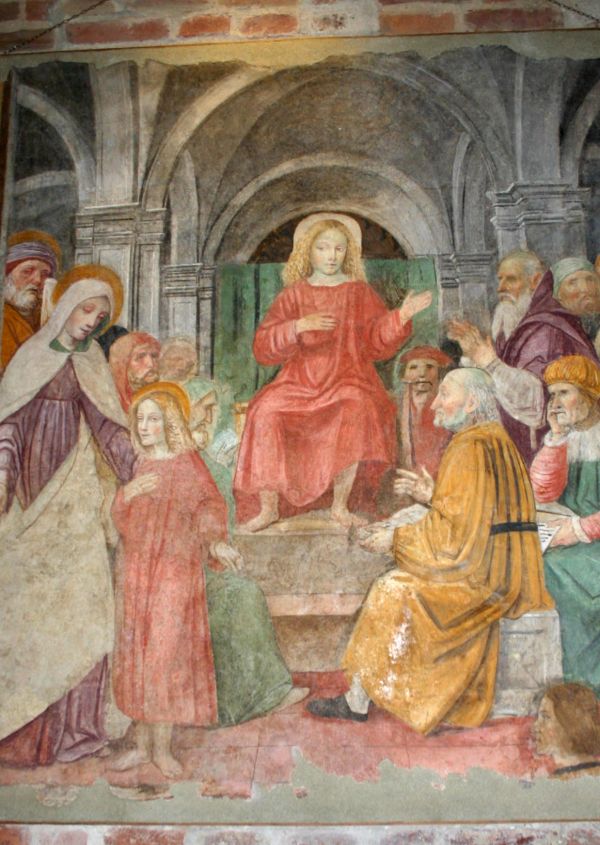(Mt 5:17-19)
In the face of the Law’s precepts, distant attitudes appear.
There are those who demonstrate attachment to the material sense of what has been established. Others, omission or contempt for the rules.
Jesus offered such a new and radical teaching as to give the impression of carelessness and rejection of the Law. But in fact, more than his differences with it, He was attentive to the profound meaning of the biblical-Jewish directives.
He didn’t intend to «demolish» (v.17) the Torah, but he certainly avoided allowing himself to be minimized in the cases of morality that parceled out the basic choices - and made them all exterior, without fulcrum.
The legalistic sclerotization easily tended to equate the codes... with God. But for the believer, his "obligation" is at the same time Event, Word, and Person: global following.
In the first communities some faithful believed that the norms of the First Testament should no longer be considered, as we are saved by Faith, not by works of Law.
Others accepted Jesus as the Messiah, but couldn’t bear the excess of freedom with which some brothers of the church lived his Presence.
Still linked to an ideal ethnic background, they believed that ancient observance was mandatory.
There was no lack of brothers enraptured by an excess of fantasies in the Spirit. In fact, some denied the Hebrew Scriptures and considered themselves free from history: they no longer looked at the life of Jesus.
Mt seeks a balance between emancipation and closure.
He writes his Gospel to support converts to the Faith in Christ in the communities of Galilee and Syria, accused by the Judaizers of being unfaithful to the Torah.
The evangelist clarifies that Jesus himself had been accused of serious transgressions to the Law of Moses.
The trajectory of the Jewish Scriptures is the right one, but it doesn’t have an unanimous and totally clear starting point, nor the strength in itself to reach Target.
The arrow of the Torah has been shot in the right direction, but only in the Spirit of the Beatitudes can a living assembly gain momentum to reach Communion.
The Gospel passage is concerned to emphasise: the ancient Scriptures, the historical story of Jesus, and life in the Spirit must be evaluated inseparable aspects of a single plan of salvation.
Lived in synergy, they lead to the conviviality of differences.
The God of the patriarchs makes himself present in the loving relationship of the communities, through faith in Christ, who expands his own life in their hearts.
The Living One conveys the Spirit that spurs all creativity, He overcomes unfriendly closures; He opens, and invites.
[In us, Jesus of Nazareth becomes a living Body - and the pleasure of doing manifests Him (from the soul) in Person and full Fidelity].
Handing oneself out to brothers and going to God thus becomes agile, spontaneous, rich and very personal for everyone: the Strength comes from within.
New or ancient Words, and Spirit renewing the face of the earth, are part of one Plan.
Only in the total fascination of the Risen One does our harvest come to complete life - the full objective of the Law - becoming ‘forever’.
[Wednesday 10th week in O.T. June 12, 2024]












